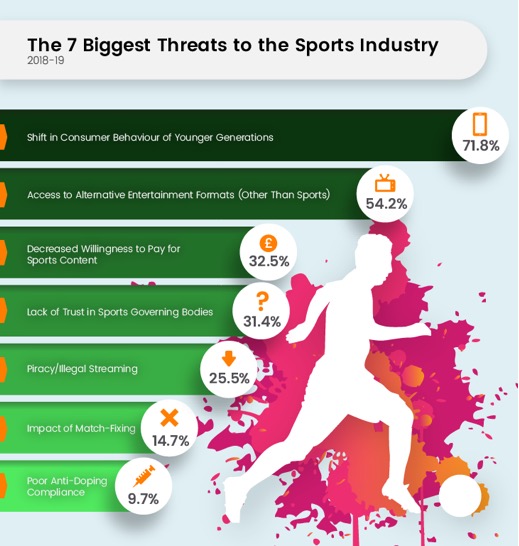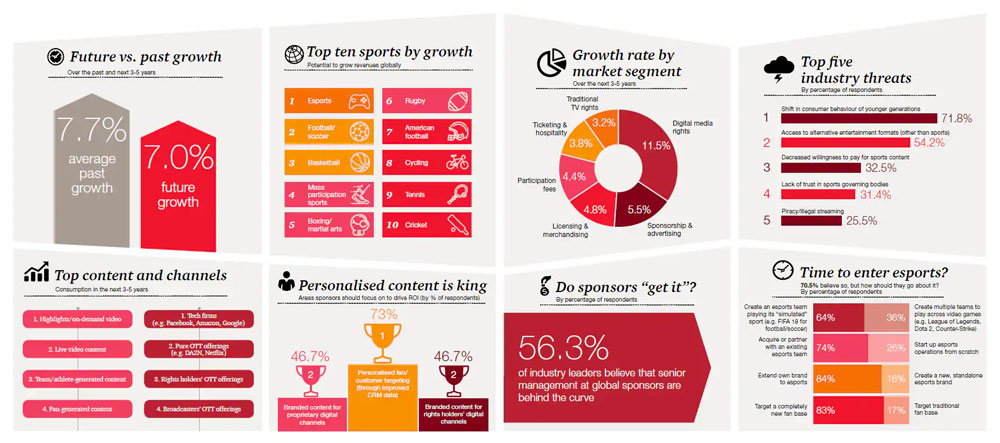The face of sport is changing. In PwC’s Sports Survey 2018, sports leaders across the world claim they foresee uncertain conditions, as we continue to evolve towards digital media consumption; with many questioning whether the sports industry is somewhat lost in the transition.
After all, electronic sports have the most potential to grow revenues globally according to sports leaders, overtaking juggernauts like football and basketball to land the number one spot. Moreover, the esports economy is forecast to double in size by 2022. Proving times to be changing and presenting an urgency for the sports industry to change with it – or risk being left behind.
Sporting experts, Ticketgum.com analysed PwC’s report in greater detail to expose the 7 biggest threats to traditional sport – per sports industry leaders – to reveal the factors that should be considered ‘high priority’ in 2019 if the industry is to compete with change.
Ticketgum found over two thirds (71.8%) of sports leaders believe the ‘shift in consumer behaviour of younger generations’ to be the biggest threat to the sports industry in 2018-19 – up from 56.6% in 2017.
This isn’t surprising. Younger generations are transitioning the way they take in entertainment from traditional TV in favour of mobile devices. It’s increasingly important to tailor to the preferences of a young audience, given that their purchasing power will only increase going forward.
The next biggest threat is ‘access to alternative entertainment formats’ at 54.2% – up from 28.6% in 2017. With the likes of Netflix pouring billions into unique content and a drastic increase in esports and gaming, competition remains rife in the entertainment space. It’s likely this threat will remain at the forefront of the industry over the coming years.
Thirdly, a ‘decreased willingness to pay for sports content’ is a major concern for 32.5% of global sports leaders and strongly links to threat number five – ‘piracy/illegal streaming’ – supported by 25.5% of the vote.
Global sports leaders feel factors such as ‘impact of match-fixing’ (14.7%; down from 21.7% in 2017) and ‘poor anti-doping compliance’ (9.7%; down from 13.8% in 2017) pose less threat in 2018-19 but should still be considered moving forward, in a bid to streamline and improve the industry.
*The data analysed was collated via an online questionnaire that was distributed by PwC to sports industry leaders across the world. In total, 470 responses were received, across 42 countries.




Leave A Comment